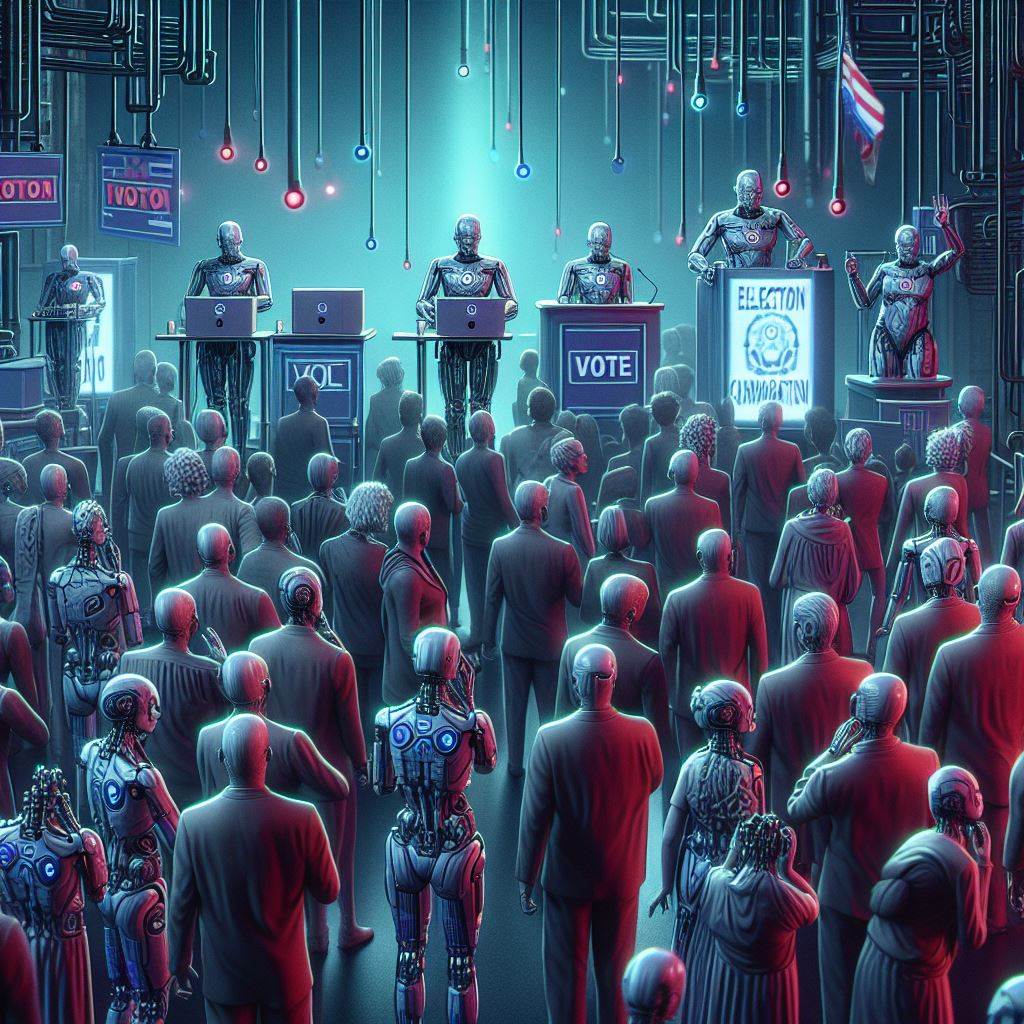For some time now – and from various sources – disinformation has been indicated as a serious threat to global stability: in January came the alarm of the World Economic Forum, according to which disinformation driven by artificial intelligence is the ‘greatest global danger in the short term’; then the European Union went into greater detail in a report on the mechanisms and possible threats behind the interference and manipulation of information from outside, in a year in which several important electoral appointments are scheduled, including the European elections.
And now, the United States is sounding the alarm on the dangers of disinformation and the risk that artificial intelligence could enhance it in light of the numerous elections in 2024. Meanwhile, there is no end to the cases of disinformation campaigns and networks being uncovered: after Germany, a new episode has occurred in France. And in the world of social media, there are those who are preparing for the challenge with their eyes turned towards the elections.
US Elections
The latest voice to rise was that of Lisa Monaco, Deputy Attorney General of the United States. In an interview with the British broadcaster BBC, Monaco said she was concerned about the possibility of ‘malicious actors using artificial intelligence-generated content to spread and supercharge misinformation and disinformation’. For the deputy attorney general (roughly the counterpart of the deputy minister of justice), this could lead people to ‘distrust information sources, dissuade or confuse them from exercising their right to vote’. But also ‘incite violence’ and more generally ‘sow distrust and chaos’.
Munich also revealed that consideration is being given to making the use of artificial intelligence an aggravating factor in the US penal system to achieve ‘harsher sentences for those who use AI maliciously to commit a crime’. Last week, the Federal Communications Commission also made ‘robocalls’ – i.e. automated phone calls made by artificial intelligence – illegal during elections. A measure that came after President Joe Biden ended up at the centre of a case in January when thousands of voters in New Hampshire received a phone call in which what sounded like the voice of the White House tenant urged voters not to vote in the state’s primary.

Europe will be the first test
However, before the US vote in November, the European elections in the 27 member states are scheduled for June. And in view of the call to the polls, the social TikTok has decided to make available a new section of the app called Election Centre. From March, it will be possible to access it from all EU countries in local languages to read verified and validated news also related to politics and public life. “Together with the technology, our teams work to ensure constant enforcement of the rules in order to detect and remove misinformation, covert manipulation operations and other content and behaviour that can escalate during an election period,” a company note explained. In addition, according according to TikTok’s statement, in the third quarter of 2023, the social network eliminated 99 per cent of content with electoral and civic misinformation before users reported it.
The fight against disinformation, however, does not stop at election time. If in recent weeks it was Germany that had revealed the existence of a vast campaign conducted on X by over 50,000 fake accounts, now it is France that has reported the discovery of a network of disinformation sites based in Russia. According to a report by Le Monde, the network was made up of 193 fake news sites and – underlines the Guardian – its main objectives were to disseminate pro-Russian propaganda in defending the invasion of Ukraine and criticising the government in Kiev.
The report published by Viginum – the French government’s watchdog against foreign digital interference – states that the operations would not have been limited to this: the network would have ‘directly contributed to polarising public digital debate’. Finally, French officials quoted by France24 pointed out that Russian disinformation is going beyond the war in Ukraine: in a year marked by several important elections, Russia is allegedly working to confuse and frighten voters, discredit some candidates, and favour others.



